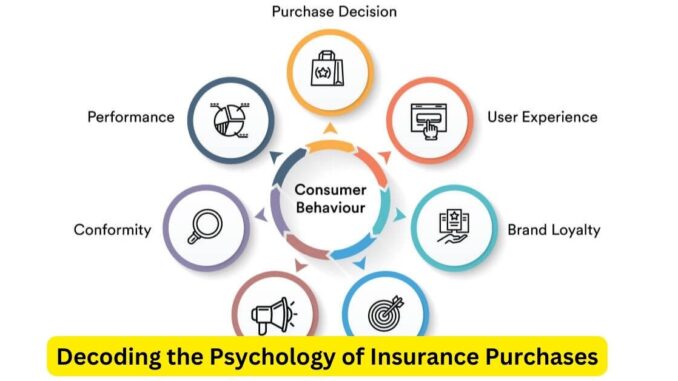
The decision-making process behind purchasing insurance is a multifaceted interplay of emotions, perceptions, and rational considerations. Understanding the psychology behind insurance buying sheds light on the complex factors that influence consumer behavior in this critical financial decision.
Risk perception plays a pivotal role in insurance purchases. Individuals assess risks differently based on their experiences, biases, and emotions. The perceived likelihood and severity of potential risks significantly impact the perceived value of insurance. For instance, someone who has experienced a significant health issue might prioritize comprehensive health coverage, while another individual might focus on protecting valuable assets like a home or car.
Loss aversion, a fundamental principle in behavioral economics, heavily influences insurance decisions. Consumers tend to be more averse to losses than they are attracted to gains. Insurance, in this context, represents a safety net against potential losses, compelling individuals to purchase coverage to protect what they perceive as valuable.
The role of emotions in insurance purchases should not be underestimated. Fear, uncertainty, and anxiety about the future can drive individuals to seek security through insurance. Conversely, positive emotions, such as peace of mind and reassurance, can motivate consumers to invest in insurance as a means of safeguarding their well-being and that of their loved ones.
Moreover, cognitive biases often influence decision-making. Anchoring bias, for example, can lead individuals to rely heavily on initial information or reference points when assessing insurance options, potentially overlooking better-suited policies. Confirmation bias may cause consumers to seek information that confirms their existing beliefs or choices, leading to limited exploration of alternative insurance options.
The influence of social factors on insurance purchases is noteworthy. Social proof, or the tendency to follow the actions of others in similar situations, can heavily impact decisions. Positive experiences shared by peers or family members regarding specific insurance products or companies can significantly sway a consumer’s choice.
Insurance buying is also influenced by trust and perceived credibility. Consumers are more likely to purchase insurance from companies they trust and perceive as reliable. Factors such as brand reputation, customer service, and transparent communication about coverage and claims procedures greatly influence consumer confidence in an insurer.
Understanding these psychological drivers of insurance buying behavior allows insurers to tailor their marketing strategies and products effectively. Employing behavioral insights, such as simplifying information presentation, leveraging social proof, and emphasizing emotional benefits, can resonate more deeply with consumers and aid in decision-making.
Additionally, providing personalized recommendations based on individual needs and preferences can enhance customer satisfaction and trust. Utilizing technology to offer interactive tools or simulations that help consumers visualize the value of insurance in mitigating risks can also be instrumental in influencing purchasing decisions.
In essence, comprehending the psychology behind insurance buying illuminates the intricate interplay of cognitive biases, emotions, social influences, and risk perceptions. By recognizing and addressing these factors, insurers can better connect with consumers, foster trust, and offer insurance solutions that resonate with the diverse motivations and needs of individuals.

Leave a Reply